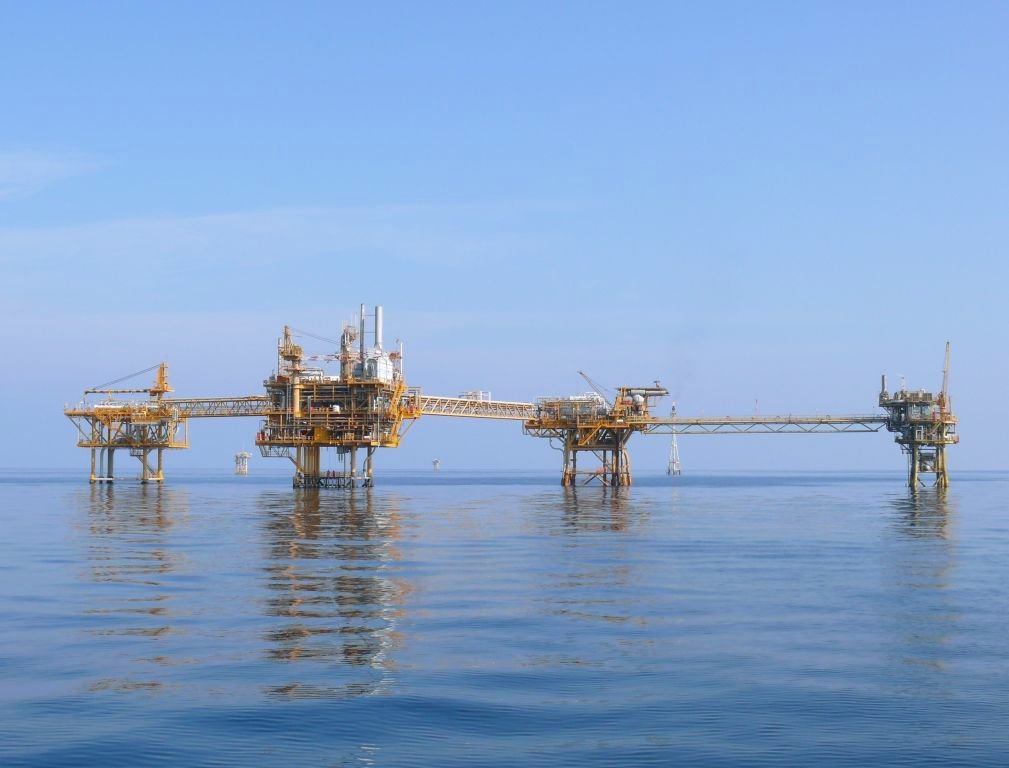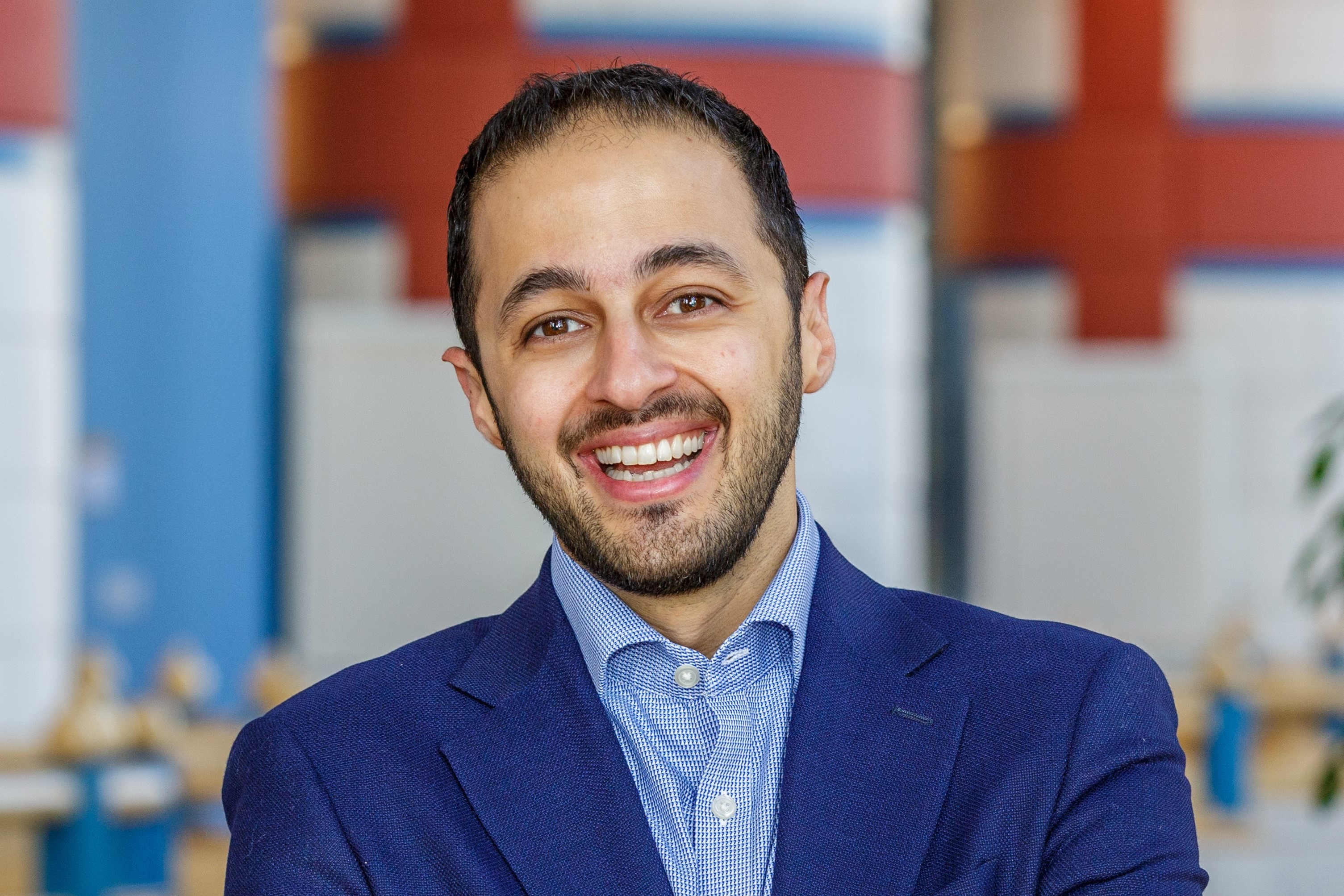
Kamiar Mohaddes has co-edited a new book which suggests institutional weaknesses are to blame for the lack of economic growth and stability in the Middle East.
There really has been a dearth of academic and other research attention paid to the economic issues in the Arab region, which is really surprising given that there’s a more than 80-year history of how oil and gas have affected the region’s economic, fiscal and export structures.
Kamiar Mohaddes
A new book which addresses how Arab countries can escape a “resource curse” in which oil and gas riches don’t translate into long-term economic growth and stability has been co-edited by Gates Cambridge Scholar Kamiar Mohaddes and is being launched at an event next week.
The Arab region that includes the six Gulf Cooperation Council economies (Bahrain, Kuwait, Oman, Qatar, Saudi Arabia and the United Arab Emirates) and more populous countries like Algeria and Sudan have often had their economic performance buffeted by oil price volatility, so the book draws policy recommendations on how they can best exploit their resources to avoid such a curse.
The book, entitled Institutions and Macroeconomic Policies in Resource-Rich Arab Economies, argues that weak institutions (including political institutions) rather than commodity price volatility best explain the often ineffective macroeconomic policies in oil-producing countries that have produced disappointing outcomes regarding inflation, growth and diversification.
“The quality of institutions governing macroeconomic policy (including political, fiscal and monetary institutions) matters more than the abundance of oil and gas revenues for macroeconomic policies and outcomes, including long-run growth and stability, in oil exporters,” says the book, adding that this is especially important given the decline in oil prices since 2014 “which many believe is the new normal”.
The 464-page book is published by Oxford University Press, and there will be a book launch and panel discussion featuring Shanta Devarajan,former acting Chief Economist at the World Bank from Georgetown University, Adeel Malik from Oxford University and Kamiar at King's College, Cambridge on 5th November.
The book is edited by Kamiar Mohaddes, University Senior Lecturer in Economics & Policy at Cambridge Judge Business School, Jeffrey B. Nugent, Professor of Economics at the University of Southern California, and Hoda Selim, economist at the International Monetary Fund. Kamiar [2005] did his PhD in Economics at Cambridge with the support of a Gates Cambridge Scholarship.
The book includes contributions from 13 authors including the three editors on topics ranging from reforming fiscal institutions to the effective use of oil revenues. It seeks to fill “an enormous research gap” about the Arab world that is puzzling given that the region’s oil and gas reserves account for more than half the global total.
“There really has been a dearth of academic and other research attention paid to the economic issues in the Arab region, which is really surprising given that there’s a more than 80-year history of how oil and gas have affected the region’s economic, fiscal and export structures,” says Kamiar. “We hope the wide variety of studies included in the book will address this, while reflecting the fact that there is no one-size-fits-all model with regard to policy reforms in the Arab world.”
Among other findings and suggestions, the book states that regime stability has been such a priority that oil price volatility and external political shocks can prompt the region’s governments to display “extremely procyclical spending” that is not adjusted downward when prices fall. One chapter suggests a novel countercyclical policy proposal that would tie the fixed exchange rate of Gulf Cooperation Countries to a broad “currency-plus commodity basket” that includes the dollar, euro and the oil price.
Another section of the book confirms earlier research that found inefficient spending patterns of oil-rich countries, arguing that this reflects the fact that “oil revenues go directly to the government without passing through the hands of the citizens. Without citizen knowledge or scrutiny over oil revenues, governments have greater leeway in spending, often resulting in waste and fraud”.
The book grew out of Economic Research Forum research projects supported by the World Bank and the Arab Fund for Economic and Social Development.
*Picture credit: Mubarak Offshore Platform, United Arab Emirates. c/o Crescent Petroleum/Icethorn

Kamiar Mohaddes
- Alumni
- Sweden
- 2005 PhD Economics
- St John's College
Kamiar Mohaddes is an expert in the macroeconomics of climate change and sustainability at Cambridge University, where he is the Co-Director of the climaTRACES Lab, a new interdisciplinary research initiative at the University of Cambridge focusing on climate, nature, and sustainability. He is also the Deputy Director of the Cambridge Executive MBA programme and Fellow in Economics at King’s College, Cambridge, where he co-founded and directs the King’s Entrepreneurship Lab.
In addition to climate change and sustainability, Kamiar's research covers energy economics, economics of the Middle East, and applied macroeconomics more broadly. He is among the top 1% authors globally in IDEAS/RePEc (based on last 10 years of publications). His articles have been published in a number of edited volumes (Cambridge University Press, Oxford University Press, and Routledge) as well as in leading journals, including the Journal of Applied Econometrics, Journal of International Economics, Management Science, and the Review of Economics and Statistics. His research has also been covered in major international news outlets including the BBC, Bloomberg, The Economist, the Financial Times, the New York Times, Reuters, The Wall Street Journal, and the Washington Post. Kamiar’s work has been cited extensively by policymakers, including by more than 25 members of the United States Congress, the Congressional Budget Office, and the White House.
Kamiar has worked extensively on issues related to climate change and sustainability with both the public (including the United Nations, World Bank, Asian Development Bank, IDB) and the private sector (BCG, BNP Paribas, KPMG and many others). He is a regular visiting scholar at the International Monetary Fund and has previously served as a Departmental Special Advisor at the Bank of Canada. He has worked closely with colleagues at these institutions to, for instance, develop tools to help examine and disentangle the size and speed of the transmission of different global, regional, and national macroeconomic shocks.
Kamiar obtained his PhD in economics from Cambridge as a Gates Scholar.
Links
https://www.jbs.cam.ac.uk/people/kamiar-mohaddes
https://www.mohaddes.org
https://www.linkedin.com/in/kamiarmohaddes












